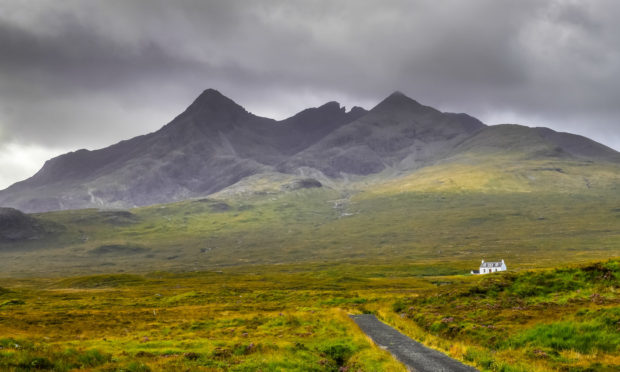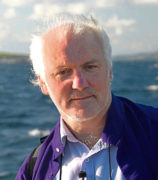One of the many consequences of Covid-19 is that the great escape from the city to the country has magnified, with the result that already over-priced properties and land in rural areas are in huge, and increasing, demand.
Which means that young local people are less and less able to buy, or even rent, a place of their own in their native land. For who on Skye, for example, can compete in an open market where the average price of a house is currently around a quarter of a million pounds?
I checked the local estate agents today: there are seven houses on the market in the area described as South Skye and Sleat: the average price is £240,000.
The area described as North and North-East Skye currently has two plots for sale – one at £45,000 and the other at £90,000 and three houses for sale – one at £159,000, one at £245,000 and one at £350,000. I’m not that good at sums, but that’s an average of £251,000.
Now you may move in different circles than I do, but I don’t know anyone who has a spare quarter-of-a-million pounds to buy a house here. Or the percentage to put down any deposit. The few people I know who have saved something up would then need such a huge mortgage that it would be completely unmanageable.
It simply leaves the market open to those who either have loads of money in the first place or – more likely – who are selling their house in the even more inflated market in the south, then moving up into a rural area and are able both to outbid and to buy outright any property on the market, and still have a tidy sum left over in their bank account from the sale of their previous property.
I don’t need to be Einstein to know that if you sell a house in Oxford, where the average price is £511,000, and buy in Skye, where the price is £250,000, that gives you not only a lovely house with a view of the Cuillin but also £261,000 in the bank. Monopoly anyone?
Now I know the arguments connected with this: It’s a free world and all that, and the open market rules, and you can’t stop people from selling to the highest bidder, and the folk who are selling down in the cities and shires have worked hard for their position and you can’t penalise them, and a bodach and cailleach from anywhere in the world are as entitled to a view of the Cuillin as anyone born and brought up within sight of it and so on and so forth.
Except we don’t live in a completely Darwinian “De’il tak’ the hindmost” world. Well at least not totally yet. I realise that Donald Trump, and Johnson’s government here, are daily racing towards that non-regulated universe, but Covid-19 itself has surely made us all realise that we are dependent on one another. Suddenly, the value of cleaners (as opposed to currency traders) may have dawned on some people.
And so with our communities: they cannot survive on wealth alone. Young people are the very lifeblood of any community, for without them there is no future: no local school, no local football team, no local shinty team, no sound of children playing outside, no one to look after the elderly, no one to bear and carry the indigenous traditions and songs and culture of the area.
All that is endangered when local young people – young people like my own children – are unable to buy or rent a place on their native heath. I realise that some – many – by choice decide to leave and find a free and better life in the city, but as many – more – would, by choice, stay here if they could afford it.
We can surely do better for them. In the same way that the government “intervenes” with our health through the NHS and “intervenes” with our “freedom to drive” at whatever dangerous speeds we want on the roads by imposing speed limits, then surely we can “intervene” by prioritising social housing for our young native people in the scandal that is the open and dysfunctional housing market?
The inflated price of land itself is at the heart of the matter. For there is plenty of it: not just the hundreds of thousands of estate acres but lots of disused croft-land which is treated as almost sacrosant. I could show you plenty of crofts, corners overgrown with rushes and thistles, where young families could build homes and a future. Crofts are sacred only when used, not merely inherited. Give the young people plots of land to build our future.
There are many examples all round the world, Denmark for instance, where local cultural needs are prioritised over profit. It’s time we did the same in Scotland. For the sake of our young people, our land, our language, our collective well-being and future.
Angus Peter Campbell is an award-winning writer and actor from Uist

